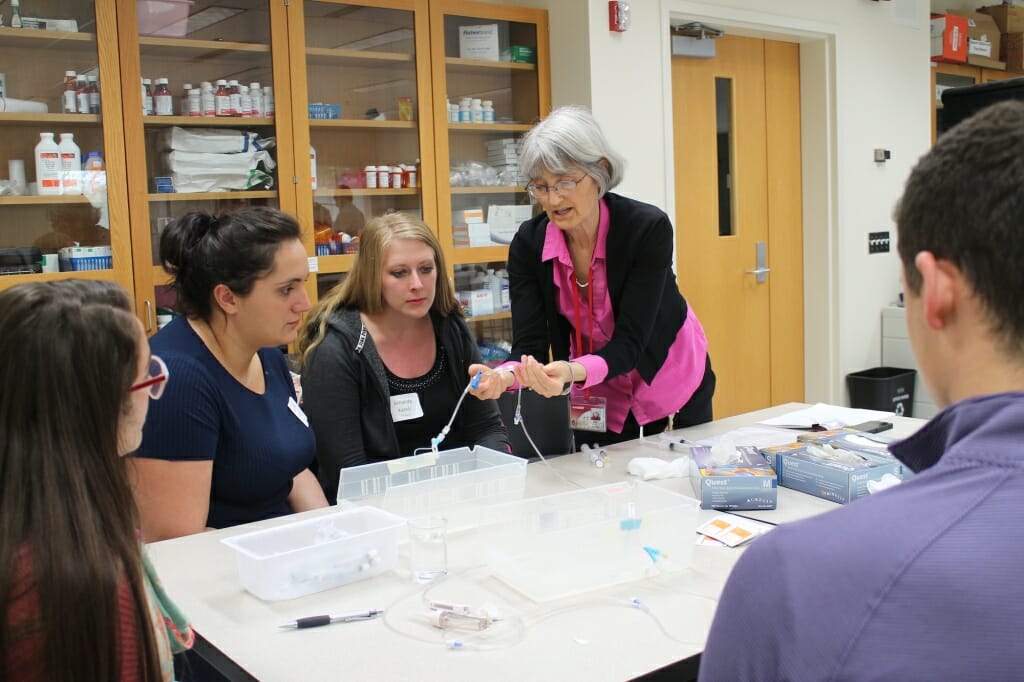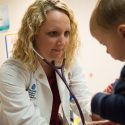Program focuses on preparing pharmacy students in rural areas

Pharmacy professor Mara Kieser works with pharmacy students. The school has started placing students in rural settings for clinical training. UW–Madison School of Pharmacy. UW-Madison School of Pharmacy.
From February through June, we will be highlighting the ways that UW–Madison changes lives for the better throughout the state of Wisconsin. February’s theme is Improving Health. Watch for more at #UWChangesLives on social media. And here’s how you can help.
In May 2018, UW–Madison School of Pharmacy launched a rural-focused advanced pharmacy clinical training program that places students in smaller hospitals and health systems in Platteville, Sauk, Monroe, and Fort Atkinson, Wisconsin.
Rural areas have a high need for more pharmacists with clinical skills and understanding of public health.
“The rural focus is beneficial because there are more job openings in rural areas, and many students want to take their skills back to their hometowns,” says Mara Kieser, professor and assistant dean of experiential education at the School of Pharmacy. “Sometimes as the only health care provider, pharmacists in rural pharmacy practice have a much broader role where you have to be a jack of all trades and know a little about a lot of things, plus you have to know how to manage the resources available to you.”
The Advanced Pharmacy Practice Experience Residency Track (APPE RT) program provides immersive training on the challenges unique to rural pharmacists. For example, learning about the many practice responsibilities in rural settings, working closely with providers and administration, and understanding payment challenges for rural practitioners.
“Our first student in the rural APPE RT will be working in multiple rural sites, including Platteville, Reedsburg, Fort Atkinson, Neenah, and Sauk, but will also complete a longitudinal project to connect those experiences and better position him for a residency after graduation,” explains Kieser.
With nearly 40 percent of pharmacy students coming from hometowns in rural areas, the new rural-focused clinical training program strengthens the pharmacy school’s commitment to rural health and the Wisconsin Idea of serving the citizens of the state and beyond.
“The School of Pharmacy has been a leader in producing and training pharmacists in the state of Wisconsin, particularly in rural areas,” says Kieser. “We hope the rural residency-track clerkship program will attract more pharmacists to work in rural areas.”
You can learn more about this and other experiential learning programs at the UW–Madison School of Pharmacy here.


